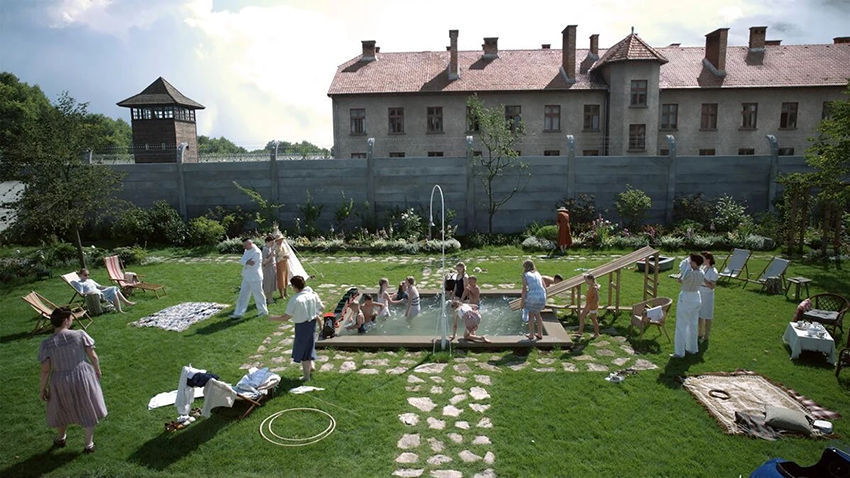Jonathan Glazer’s fourth feature after the stunning science fiction trip Under the Skin takes on much more grounded but no less urgent subject matter – Nazism and the Holocaust. It’s a film about the ability inherent in humanity to willfully ignore the worst of us for the sake of maintaining and curating our own constructed realities. Even when, in the case of The Zone of Interest, the worst of us is literally over our back wall.
It follows the real life story of the Höss family living in an almost Edenic home, raising their children in the literal shadow of Auschwitz. Very rarely do we ever actually see anything of the atrocities just beyond the frame, but instead we are asked to watch the Höss family be a (for the most part) reasonable, normal and loving family while a symphony of horrors and violence plays out in an oppressive and disturbing soundscape. It’s a film about cognitive dissonance, and one that depicts in great detail the mundanity of evil. It is a bold choice for a film of this nature, but one that I think results in one of the most urgent and disturbing Holocaust films in years. Because in The Zone of Interest the only horrors on screen are the ones we carry into the cinema ourselves; in depicting the atrocities of the Auschwitz concentration camp almost entirely through sound and suggestion, it relies on the viewer’s own knowledge and familiarity with the subject matter.
There are a number of moments that will leave viewers sick to their stomachs, but for me the real triumph of the film’s cacophonous sound design is the way that it begins to have the same effect on us at it does the characters. It becomes background noise. With Hedwig Höss’ mother being the only character for which the proximity to unspeakable evil becomes to much to the point of leaving, she serves at the film’s sole source of moral integrity. Her presence and eventual exit asks the same question of the audience – will you put up with this as background noise and live in perpetual cognitive dissonance? Or will you take action? For a film about the Holocaust it is frighteningly current, and urgently so.
In a haunting final moment this choice is presented to Rudolf Höss, and when given the choice between light and dark with the clarity of retrospect, he makes the inevitable and willing descent into the shadow of evil. If we are paying attention, it seems to me that Glazer isn’t asking us to make that choice, but to make peace with the choices that we have already made.
Jonty Cornford is the host of the podcast Filthy Hope, and blogs about films at bluerosefilmreview.blogspot.com
Zone of Interest is currently in cinemas.













